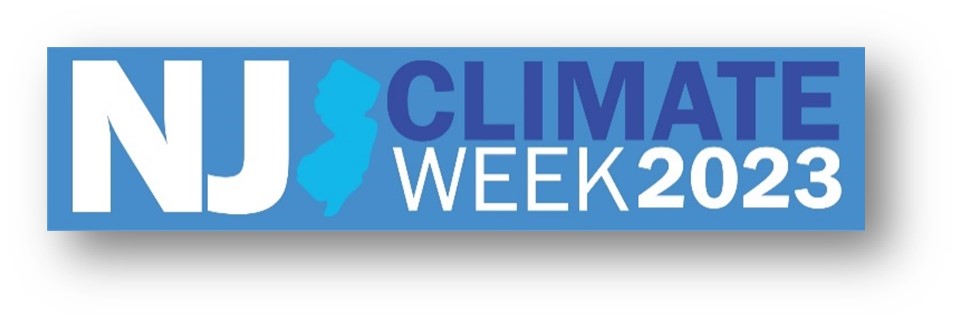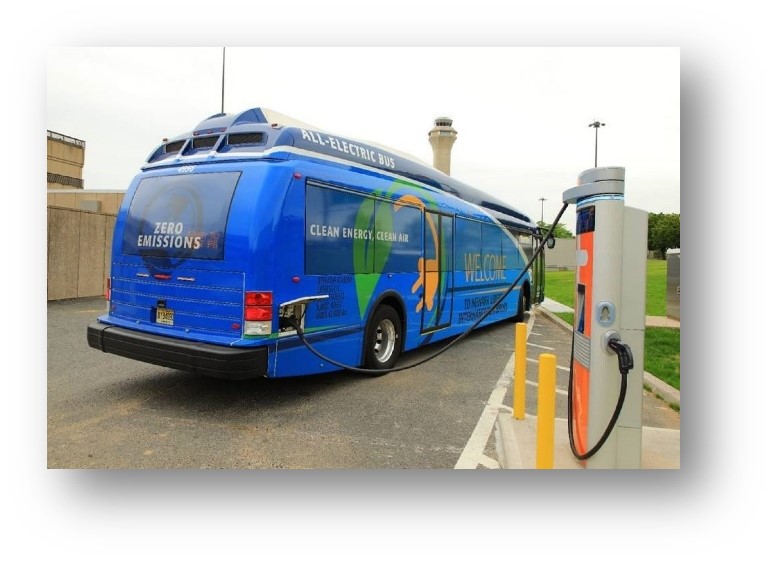(23/P048) TRENTON – In furtherance of its ongoing commitment to address the worsening impacts of climate change in New Jersey, the Department of Environmental Protection (DEP) has developed a comprehensive plan to guide actions in seven key areas to protect public health, lives and property in the immediate and near future, Commissioner Shawn M. LaTourette announced today.
 The Strategic Climate Action Plan will set DEP’s course for continuing to address climate change impacts and inform the public about short-term and long-term climate actions to implement the recommendations developed and expand upon the actions taken as part of its New Jersey Protecting Against Climate Impacts (NJPACT) initiative. The announcement and release of the SCAP updates DEP’s progress on statewide climate initiatives and coincides with Climate Week, which runs from Sept. 17 through 24. Climate Week provides the public an opportunity to learn about climate change and actions that can be taken to become more resilient and mitigate its impacts.
The Strategic Climate Action Plan will set DEP’s course for continuing to address climate change impacts and inform the public about short-term and long-term climate actions to implement the recommendations developed and expand upon the actions taken as part of its New Jersey Protecting Against Climate Impacts (NJPACT) initiative. The announcement and release of the SCAP updates DEP’s progress on statewide climate initiatives and coincides with Climate Week, which runs from Sept. 17 through 24. Climate Week provides the public an opportunity to learn about climate change and actions that can be taken to become more resilient and mitigate its impacts.
DEP is issuing the SCAP in draft form to provide an opportunity for the public to inform and shape the final version. A 30-day comment period is underway.
“New Jersey is at a critical juncture in responding to the effects of climate change, which pose the greatest long-term threat to our health, safety, environment and economy,” said Commissioner LaTourette. “The Murphy Administration has already taken bold and crucial steps to mitigate the impacts of increasingly severe storms, rising sea levels, flooding and extreme heat through regulatory and legislative means, and we cannot let up in confronting these issues. The Strategic Climate Action Plan is a valuable resource based in science that will guide DEP’s next steps to enhance resilience and protect every community in our state.”
 “New Jersey must continue evolving and updating strategies for addressing the impacts of a changing climate,” said Chief Climate Resilience Officer Nick Angarone. “Building resilience statewide through a series of short-range and longer-term initiatives, across multiple sectors, will help assure confidence in DEP’s abilities to respond to more frequent and intense climate extremes, and confidence to protect lives and property.”
“New Jersey must continue evolving and updating strategies for addressing the impacts of a changing climate,” said Chief Climate Resilience Officer Nick Angarone. “Building resilience statewide through a series of short-range and longer-term initiatives, across multiple sectors, will help assure confidence in DEP’s abilities to respond to more frequent and intense climate extremes, and confidence to protect lives and property.”
“It is imperative that New Jersey’s planning for continuing climate extremes consider those communities long affected by disproportionate levels of climate pollution and adverse weather impacts,” said Kandyce Perry, Director of the Office of Environmental Justice. “Ensuring that the needs of every community are represented in this plan helps further the promise of environmental justice for all.”
“Transportation remains the biggest single source of climate pollution in New Jersey, accounting for nearly 40 percent of greenhouse gas emissions,” said Peg Hanna, Director of the Division of Climate Change Mitigation and Monitoring. “Driving electric vehicles and using energy-efficient appliances or devices are some of the ways we can all help mitigate the effect of climate change. Making these types of choices in our daily lives will have profound positive effects on New Jersey’s environmental health and future.”
The SCAP outlines a series of regulatory plans and policy actions, developed in alignment with Governor Murphy’s bold climate agenda, to address the worsening impacts of climate change. The plans and actions focus on reducing harmful climate pollutants and other critical mitigation measures, ensuring resilient investment and development in light of worsening flooding and sea level rise, developing a model of sustainable waste management, furthering climate equity in the state’s overburdened communities, enhancing educational and communication efforts, and centering the consideration of climate impacts in decision-making across all DEP programs.
The SCAP follows the 2020 launch of the New Jersey Protecting Against Climate Threats (NJPACT) initiative to advance state-specific climate science through planning and policy actions, and regulatory reforms. The SCAP aim is to further implementation of and build on the success of NJPACT by increasing public awareness of the DEP’s climate action plans, coordinate climate pollutant emissions reduction efforts and build climate resilience statewide.
Reducing climate hazards, enhancing resilience and strengthening preparedness have been key elements of how DEP responds to the adverse impacts of climate change. This focus has also informed a suite of reports, documents and regulatory reforms aimed at preparing New Jersey for a constantly changing climate.
In 2020, the Murphy Administration released New Jersey’s Scientific Report on Climate Change and the 80x50 Report, both elements of the state’s comprehensive strategy to reduce emissions of climate pollutants that fuel global warming, and proactively plan and prepare for the climate impacts that New Jersey cannot avoid. The 80x50 Report was written in response to a mandate in the Global Warming Response Act to reduce New Jersey's greenhouse gas emissions by 80% from their 2006 levels by 2050. The Legislature passed the Act in 2007 and updated the law in 2019. Gov. Murphy accelerated that plan in 2021, signing an Executive Order establishing a goal to reduce carbon emissions in New Jersey by 50% by 2030.
Seven action areas are identified in the SCAP, which specifies climate actions, timeframes and milestones on a tiered schedule: short-term (one to two years), medium term (two to four years) and long term (at least four years). The seven action areas are the following:
Reducing climate pollutant emissions
 New Jersey’s clean energy goals target a 50% greenhouse gas emissions reduction by 2030 and 80% by 2050. To achieve these targets, the DEP will monitor emissions reduction progress, promote electrification of buildings and facilities across state government, advance transportation decarbonization and zero-emission vehicle initiatives, and pursue regulatory reforms for generating and other industrial facilities that result in energy efficiencies and emissions reductions.
New Jersey’s clean energy goals target a 50% greenhouse gas emissions reduction by 2030 and 80% by 2050. To achieve these targets, the DEP will monitor emissions reduction progress, promote electrification of buildings and facilities across state government, advance transportation decarbonization and zero-emission vehicle initiatives, and pursue regulatory reforms for generating and other industrial facilities that result in energy efficiencies and emissions reductions.
Building climate resilience
The SCAP reflects current initiatives to enhance climate resilience statewide and identifies new protective actions. These include improving beach, bluff and dune protection to strengthen shoreline resilience; developing and disseminating a statewide extreme heat mitigation initiative; improving stormwater and wastewater infrastructure; and investing in coastal and flood infrastructure projects.
In addition, the state is developing a Resilient Environments and Landscapes (REAL) regulatory package to help the public respond to current and future climate threats. The Interagency Council on Climate Resilience will also update the statewide Climate Change Resilience Strategy and prepare issue-specific Resilience Action Plans detailing the progress of state agencies meeting resilience goals.
Securing and protecting natural and working lands
Forests, wetlands, developed lands and agricultural lands act as carbon sinks by removing carbon dioxide from the atmosphere and storing it in vegetation and soils. The DEP will take steps to further protect and enhance these properties, refine and implement the Natural and Working Lands Strategy, expand forest stewardship, and protect critical wetlands.
The DEP will also continue to develop the state’s Coastal Ecological Restoration and Adaptation Plan to identify and secure additional areas that are ecologically vulnerable to climate change and need restoration or resilience improvements along New Jersey’s tidally influenced coast, bays, and rivers.
Ensuring climate equity and justice
 The SCAP supports ongoing efforts to provide environmental justice for communities of color and lower-income communities, which experience disproportionately high amounts of air and climate pollution, as well as higher risks for flooding and extreme heat.
The SCAP supports ongoing efforts to provide environmental justice for communities of color and lower-income communities, which experience disproportionately high amounts of air and climate pollution, as well as higher risks for flooding and extreme heat.
The DEP will continue to identify and enact strategies to reduce climate pollution, enforce New Jersey’s Environmental Justice Law and Rules, and prioritize the designing and implementing of climate mitigation and resilience funding programs for environmental justice communities.
Developing and sharing climate science information
To ensure the public has the most reliable science-based information on climate change impacts, the DEP will consistently update and refine heat, precipitation, flooding, and sea-level rise data and projections through user-friendly reports, tools and mapping applications. The DEP will quantify climate change risks to ground and surface water supplies, continue supporting the Offshore Wind Research & Monitoring Initiative, and produce scientifically rigorous reports that clearly communicate findings and conclusions. In addition, the DEP will continue to support educators, schools, and communities in the statewide implementation of K-12 climate change educational standards.
Managing waste and recycling materials
To reduce waste and materials management emissions, New Jersey’s largest source of climate pollution after transportation and energy generation, the state will reduce source waste and vigorously encourage materials recycling. These efforts, coupled with regulatory and policy actions, will help reduce the amount of waste directed to landfills and incinerators.
Committing to and sustaining protective actions
The DEP will remain committed to decisions, actions and investments that may take time to produce benefits in a rapidly changing climate. To that end, the state will encourage residents at all economic levels, communities, governments, businesses and across political lines to work collaboratively to ensure the protection of the state’s people, economy and environment.
A 30-day public comment period on the SCAP opened Monday, Sept. 18, and will remain open through Wednesday, Oct. 18. To comment on the draft plan, visit https://dep.nj.gov/strategic-climate-action-plan/
The DEP’s newly updated climate change website includes a more user-friendly homepage and a collection of interactive story maps titled Climate Change in New Jersey: Impacts and Effects, which provide up-to-date climate change research, build upon the findings of New Jersey’s Scientific Report on Climate Change, and use a direct, easy-to-understand format that includes maps, photos, graphs, animations and more.
Follow Commissioner LaTourette on Twitter and Instagram @shawnlatur and follow the DEP on Twitter @NewJerseyDEP, Facebook @newjerseydep, Instagram @nj.dep and LinkedIn @newjerseydep
###
Visit Climate Change Website
 Official Site of The State of New Jersey
Official Site of The State of New Jersey
 The
The  “New Jersey must continue evolving and updating strategies for addressing the impacts of a changing climate,” said Chief Climate Resilience Officer Nick Angarone. “Building resilience statewide through a series of short-range and longer-term initiatives, across multiple sectors, will help assure confidence in DEP’s abilities to respond to more frequent and intense climate extremes, and confidence to protect lives and property.”
“New Jersey must continue evolving and updating strategies for addressing the impacts of a changing climate,” said Chief Climate Resilience Officer Nick Angarone. “Building resilience statewide through a series of short-range and longer-term initiatives, across multiple sectors, will help assure confidence in DEP’s abilities to respond to more frequent and intense climate extremes, and confidence to protect lives and property.” New Jersey’s
New Jersey’s  The SCAP supports ongoing efforts to provide environmental justice for communities of color and lower-income communities, which experience disproportionately high amounts of air and climate pollution, as well as higher risks for flooding and extreme heat.
The SCAP supports ongoing efforts to provide environmental justice for communities of color and lower-income communities, which experience disproportionately high amounts of air and climate pollution, as well as higher risks for flooding and extreme heat.